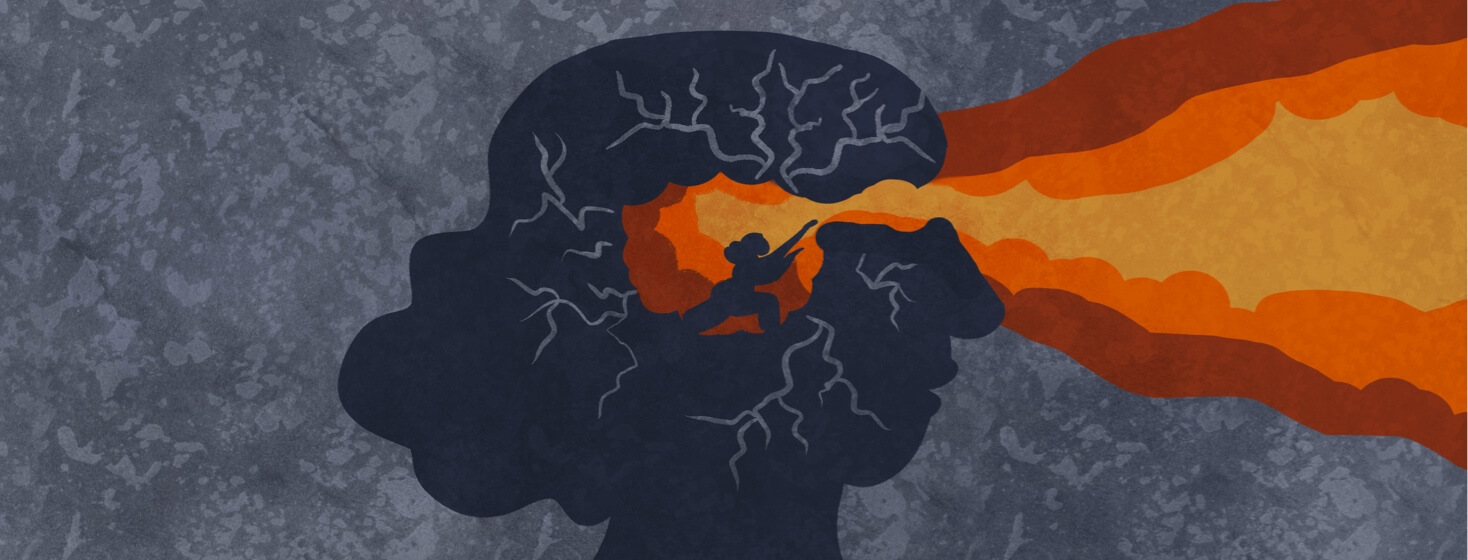The Struggle is Real
All my life I have been a health-conscious person. As a teen perhaps somewhat overly critical, but as I matured I learned to be realistic. I monitored myself to eat healthy and exercise regularly. I learned to accept what could be called flaws (physically and emotionally) as natural differences and go on to enhance my strengths.
No matter what challenges life gave me, my pattern of discipline was constant, automatic, and never-ending. There were life stressors like with job responsibilities and workload, a divorce, being a single mom of 4 children, and as with all of us, many more. I was always able to work through these experiences and move forward.
Then Graves' and thyroid eye disease (TED) came along. My "in control" personality suddenly saw everything as an issue that I desperately needed to resolve. Every little nuance set me off. My once "in charge" self felt as shaky as the tremors in my hands. My normal "too low" blood pressure shot up. My normally stable weight kept dropping despite my middle-of-the-night trips to the refrigerator. The energy and drive I always felt to get things done, flat-lined. But in my 2-year search for a diagnosis, nothing was found.
Was I imagining my symptoms?
Some doctors were quite dismissive of my symptoms. I began to question myself; maybe I am a fraud; maybe I am imagining my symptoms or exaggerating how bad they are. As a result, I pushed harder to ignore my symptoms and myself. This was the beginning of my dealing with imposter syndrome... and even behind my own back, I would crawl my way to bed. I could not believe I was no longer in control of myself.
Reaching a diagnosis of TED and Graves'
After my 2 year search, both Graves' and TED were diagnosed. At this point I celebrated.
My old self kicked in with determination that I would follow doctors' orders and get my life back on track. Ohhhh, I had so much to learn. Sometimes when I look back on this journey I wish someone would have advised me not to fight so hard. I wish someone would have simply been honest with me and explained that TED runs deeper than you think and it is very challenging. I wish I had heard those words so I could have given myself permission to quit fighting so hard or to appear like I was fine.
I tried to keep up with life even when I had to wear a patch over the eye that was bulging the most; when I found it difficult to look in the mirror, and people found it difficult not to stare. My eyes were active for 3 years. Three years of constant inflammation and distorted changes. It was exhausting but my old thought process and new imposter syndrome pushed me beyond how I really felt.
Recognizing the struggle that is thyroid eye disease
I think what would have helped me take better care of myself was if I was told, "What you are going through is truly hard. Thyroid eye disease is a progressive problem. Even mild symptoms affect your quality of life!" (My symptoms were beyond mild!) Or if I had heard, "Listen to your body." If I had heard anything close to these words, I think I would have given myself permission to quit dismissing my struggle.
In a 2021 study, I learned the following statistics of how TED affects quality of life. In addition to patients reporting changes to their vision and appearance:1
- 34 percent of people with TED reported having anxiety
- 28 percent of people with TED reported having depression
- Patients who were most impacted by their TED reported higher cases of anxiety, pain, blurry vision, and disability/unemployment
- Patients had an average of 20 doctor's visits each year
From my experience, I want to tell my peers in this community that your struggle is real. Your pain is real. You are not being overly vain when you feel the need to retreat from some social gatherings because of the pain and disfigurement TED is causing. You are not overreacting to your thyroid eye disease.
The statistics above show that TED's affects on quality of life are real. I hope you can find comfort in sharing your struggles and your successes with our community, or by simply reading the articles written by other TED peers and the editorial staff.
Ask for help if you are feeling overly anxious, depressed, or exhausted from this illness. I do not discard a positive attitude and working to get better, but sometimes we just have to admit that the struggle is real. I was really hard on myself and you do not have to be. Understand that compassion for yourself is healing too.
Do you have a thyroid eye disease (TED) story? Click the button below to share with our community!

Join the conversation